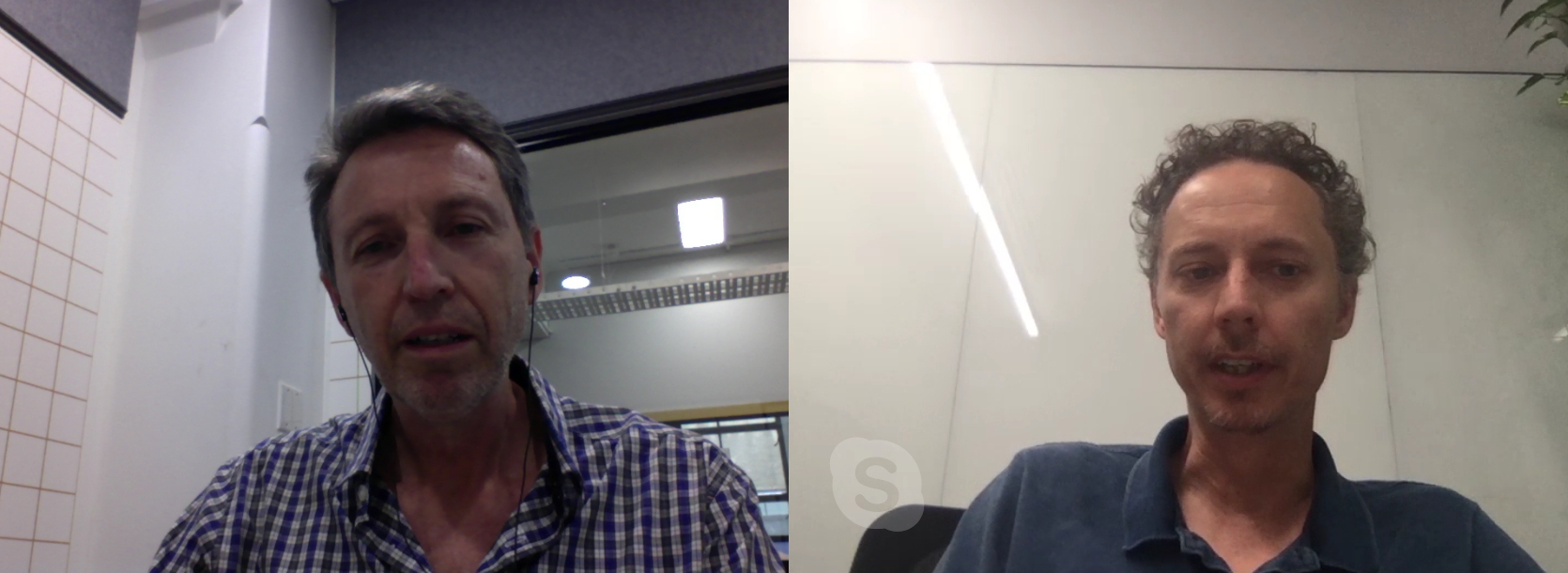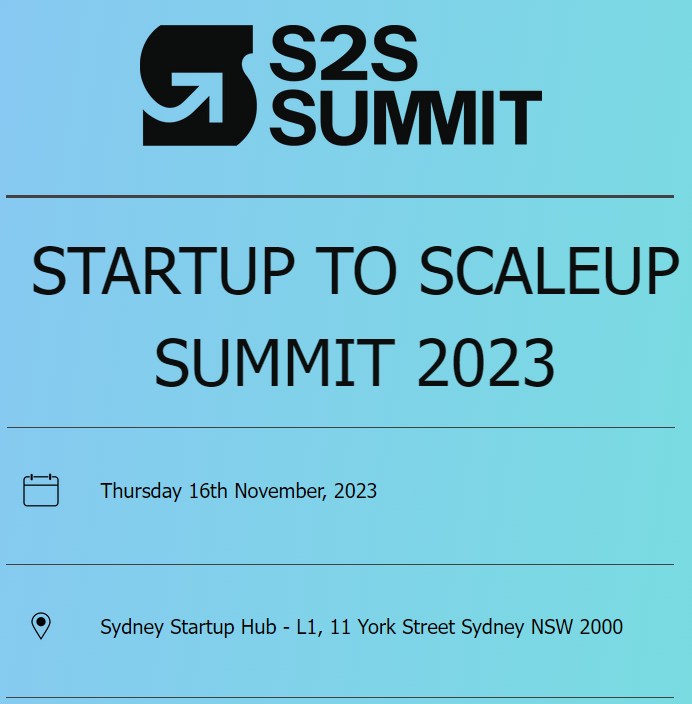Steen is Head of Product Management at Atlassian.
He was Google Drive’s Group Product Manager, VP Product at Nitro after they acquired his startup Sensedoc.
Before that he was co-founder of 5th Finger which actually got acquired (not once but) twice! by both Microsoft and Merkle.
In this podcast we are talking how Atlassian grows Product Management talent and other goodies from Steen’s startups and roles.
Don’t miss where he shares Atlassian’s Four Pillars of Great Product Managers.
- What are the qualities of a great product manager at Atlassian?
- Can you grow these skills or are they already growing on trees?
- Do PMs spend X% of their time with customers or triaging requests?
- What ratio of PMs to devs in a group? (Is there also a scrum master?)
- If we contrast with Nitro (being a smaller company) – is the role/skill different?
- How Atlassian use JTBD or “Top Tasks”
- Whats the hardest part of deciding what come next?
- Do you have a story about Feature/Roadmap Bias
Are you looking to get more users to love your mobile and web apps? Click on the buttons below to get your 14 day free trial or contact us for a demo!
Part 1 Transcript
David Jones: [00:00:01] Hello, Hello!
[00:00:01] Steen Anderson is with me today and he’s the head of product management Atlassian. He was also at Google Drive as group product manager and he was V.P. of product at Nitro which was a smaller company but an interesting company. And that was after his startup called since Doc was acquired so we’re going to cover that a little bit too. Before that he was also a co-founder at fifth finger which actually got acquired not once but twice. Believe it or not by both Microsoft and Merkel and today what we’re going to do is talk about all things product management. How are you Steen?
Steen Andersson: [00:00:34] Good. Great to be here.
David: [00:00:35] Yeah. Thanks for coming. Appreciate it. So this is a warmup for another fireside. We’re going to do so that’s gonna be fun.
Steen: [00:00:41] Yep.
David: [00:00:42] I don’t know whether we want to have a fireside in Australia during summer. It’s a little bit warmer for that.
Steen: [00:00:48] Like a beach a little beach barbecue maybe.
David: [00:00:50] Yeah I was wondering whether we should wear the sort of like the San Francisco Christmas bed jumper or whether we should wear a white shirts. I’m not sure what’s the right thing.
Steen: [00:00:59] Yeah. We’ll make it fun.
David: [00:01:02] OK, so let’s kick off, just where you’re at at the moment. So what are the qualities of a great product manager at Atlassian?
Steen: [00:01:08] I mean that question is a great one it’s a it’s one of those age old mysteries that everyone ask. You meet a new Product Manager in a back alley way and you ask him that question. Look, we’ve done a bunch of work just recently actually last year. Is it a review the way we think about PM hiring and also appear PM promotions, ah, ladder and how we think about identifying talent and success and and recognizing that and what we did. And we actually spoke to a number patterns across the company, we’ve got 120 now. A good number there. And across the senior leaders we got together and so shared with some senior folks from Microsoft folks like myself that have a variety experience of start ups as well as Google. And then my boss job Joff, is from LinkedIn and there’s a bunch of different good good sets of experience. And we actually looked at what is the sort of the common overlap of answers to that question. And we came up with these four key pillars of PM excellence or how you going to call it. They broke it into these 4 categories. So ONE is: “leads and inspires”. So a great PM needs to be able to lead a team inspire a team that’s the first thing and a lot of depth behind that we can talk about if you like. Second thing is being a “master of the PM craft”. So thinking about like all the tools in your kit bag to help you understand how to think about roadmaps and prioritization to like you know think of creative ways to drive a team through particular challenging process to come out the other side; How to ship with velocity; all these techniques to just you know operate and be a great PM. The 3rd one is “delivering outcomes” and delivering outcomes comes back a lot to things like metrics, understanding what are the key levers we have to play with and how to appropriately use those to drive business outcomes like driving MAU or driving revenue or innovating in a way that’s really differentiating that sort of thing. And the last one is “being a great communicator” and the meaning of Great Communicator is really key. I think you make great PMs you’ll tend to find a common pattern that they really grab you with the way they talk about the problems they’re working on and just how they think about their space and all things in the world and so being an awesome communicator but written, verbal and presenting are critical. So thats how we think about what makes a great PM and it’s exciting to have some of that clarity and alignment in the organization now to sort of allow everyone to work on those things and help grow their teams and hire a great to have common lens right.
David: [00:03:48] So number (1) and number (4) are really skills that can belong to a range of different jobs not just product managers; the metrics in (3) such as driving MAUs and things like that well that really is an outcome. So that sounds like number (2) is the one that’s kind of like industry specific is this the sort of thing that you have to find people that are already, you know in the industry or already doing product management or you know can you grow these skills or do you have to pick them off a tree?
Steen: [00:04:17] You look at it you can totally grow all these skills. I think like anything in life there is certainly people who naturally have the predisposition to either find it easy to learn these skills more than other people or maybe they’re really passionate about them slaves at one time and energy into it. So all “grow-able” . I think the PM craft side, the master of the PM craft is, certainly yes, it’s more domain specific. I think the challenge for us is, as you go up the PM ladder to different higher levels of seniority it does become more difficult to find people who have depth of experience in that area. But I think as you go “up”, the “sliders” is on each of these four pillars change as you go more say some ways like leadership and inspiring. More important, more seasoned, more senior you go. But they’re all all important at each level. In terms of how we think about I can talk a bit about how we think about finding and hiring and so what we look at getting teams from. If that’s helpful.
David: [00:05:15] Yeah go for it because I guess what I’m hearing is that if you’ve got somebody that’s coming in as a line PM then they could be theoretically a developer who wants to actually move into another thing as long as you feel as though they’ve got the potential to have leadership and communication skills.
Steen: [00:05:31] That’s exactly right. I think again this these pillars help us qualify that person or sort of quantify that person and they have that that sort of product “gene” potentially and the passion and they can communicate their ideas and that sort of thing and they are a clear thinker. The biggest challenge for us is hiring PMs, for sure it’s challenging. I think in our business unit last year because we have fairly technical products we do have this natural tendency to want to hire people who also have an unstated 5th leg which is some sort of technical knowledge.
David: [00:06:03] Yeah. Yeah. It’s really different to some sort of consumer product where there’s where there’s a lot of touchy feely stuff or things that many people can kind of just relate to as a user “in a sense”.
Steen: [00:06:17] Yeah exactly. I think if you go outside of high tech and the word Product Management can relate to things like you know the marketing programs for a cereal packet like there’s a very different broad spectrum of the title. But in the bounds of high tech and suddenly it’s certainly challenging. And so we have a few programs we do things we do. We look at for the sort of more entry level PMs. We run an APM program – associate product manager program. It’s somewhat based off the sort of great leadership done by Google and then Facebook and LinkedIn and now a number of other sort of leading tech companies in the US globally. That’s basically a acceleration program for first time coming out of university. It’s a two year program; they do two one year rotations through different teams of the company. And that’s designed to give them a breadth of experience exposure to domains, different teams, different folks to learn from and accelerate their growth strategy, so after 2 years they can become PM and being highly productive. The long term goal there is to bring those people in at the entry level and grow them to be long term leaders of Atlassian. We might find they go and leave the company for a while and then come back at some point the future, we don’t want people to expect to come here and be here for like 20 years. That’d be great but that’s not realistic nowadays. Yeah. This idea of like helping see the industry, have people coming and going, but creating these long term PM leaders that have affinity with our business and our values is certainly part of the focus. So to that is the entry point. We have intakes in Bay Area and in Sydney and also New York we’re starting up next year. So that’s sort of that’s the APM channel. We then have to straight hiring we do pay PM level up to sort of all that through. Now hiring entry level PMs is not too hard in most places. We look at if they have got foundations of those four pillars to have a basic level and that means studied engineering computer science necessarily but they need to know enough of ground you know what is a programming language like they’ve dabbled with code and with computers enough they can understand the basics and found that the fundamentals. That’s often enough, but, if someone’s got like no technical companies competency whatsoever or interest in it. We find that it’s like we’d rather hire someone who has that versus not. It’s just doesn’t it just you know not it’s much harder to be successful. So that’s one thing for us at least.
[00:08:36] And then as we look to the senior levels, the senior levels are hard for us because we’re looking at folks who’ve got experience. And some markets like Australia or even parts of the US like in regional parts of the US you may have or Europe you might not have the development path. It’s a bit like trying to hire a top grade cricketer in the US or a top level gridiron player in Australia, your just not gonna find it because there isn’t that sort of nurturing from young level right the way through to develop that talent so well that’s way too easy. You know you grow it ourselves or bring it in from another country or region.





